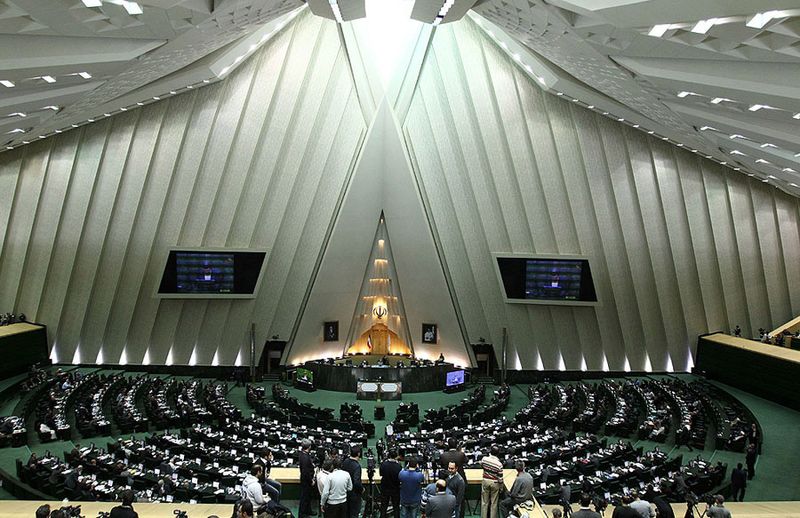Iran is still in the midst of negotiating with world powers in the hopes of restoring the 2015 nuclear deal. Tehran has recently pledged to continue developing the nuclear program that it has repeatedly maintained to be used for peaceful purposes.
Top officials in Iran have pledged to continue on with the development of its peaceful nuclear program as they celebrated National Nuclear Energy Day in a ceremony in Tehran. The ceremony that took place Saturday, saw Iranian President Ebrahim Raisi in attendance, as well as Iran’s nuclear chief Mohammed Eslami.
The ceremony also had displays of radiopharmaceuticals that would be mainly used for treating and preventing the spread of cancer, as well as the uses of plasma technology which include the development of cold plasma that would treat cancer patients, and displays of laser-based technology for industrial use.
Iran’s Atomic Energy Organization said that it produced a prototype silicide fuel plate to feed the Tehran Research Reactor with the objective of significantly increasing electricity generation through nuclear power plants. This includes a new plant in the works in Darkhovin in the western region of Khuzestan.
Raisi said the advancements made from the country’s nuclear program could not be reversed, and he will continue to support them. When it came to engagement with the UN nuclear organization, the IAEA, Eslami, said the country will move towards a professional relationship that will be free of any interference from “enemies.”
This unveiling comes amidst the months-long negotiations to restore the 2015 deal, which the US under Donald Trump abandoned in 2018 and instead imposed sanctions on Iran.
Meanwhile, Tehran and Washington have imposed sanctions on each other over several issues. The latest sanctions from Iran have added 24 US officials and other individuals over charges of “terrorism” and human rights violations of the Iranian people.
Iran’s foreign ministry Saturday announced that it has imposed penalties on nine people for “involvement in terrorist acts.”
Among those who were sanctioned include former US Central Command commander Joseph Votel, former US Army Chief of Staff and commanding general to the Multi-National Forces in Iraq George W. Casey Jr., several current and former diplomats based in Palestine and Lebanon, as well as former President Donald Trump’s attorney Rudy Giuliani. 15 individuals were also blacklisted by Iran for “gross violations of human rights.”



 Trump Announces U.S. Strikes on Iran Navy as Conflict Escalates
Trump Announces U.S. Strikes on Iran Navy as Conflict Escalates  Macron Urges Emergency UN Security Council Meeting as US-Israel Strikes on Iran Escalate Middle East Tensions
Macron Urges Emergency UN Security Council Meeting as US-Israel Strikes on Iran Escalate Middle East Tensions  Israel Launches Fresh Strikes on Iran After Death of Supreme Leader Ayatollah Khamenei
Israel Launches Fresh Strikes on Iran After Death of Supreme Leader Ayatollah Khamenei  Trump Says U.S. Combat Operations in Iran Will Continue Until Objectives Are Met
Trump Says U.S. Combat Operations in Iran Will Continue Until Objectives Are Met  Iran Supreme Leader Ayatollah Ali Khamenei Killed in Israeli, U.S. Strikes: Reuters
Iran Supreme Leader Ayatollah Ali Khamenei Killed in Israeli, U.S. Strikes: Reuters  UK Accepts U.S. Request to Use British Bases for Defensive Strikes on Iranian Missiles
UK Accepts U.S. Request to Use British Bases for Defensive Strikes on Iranian Missiles  U.S.-Israel Strike on Iran Escalates Middle East Conflict, Trump Claims Khamenei Killed
U.S.-Israel Strike on Iran Escalates Middle East Conflict, Trump Claims Khamenei Killed  AI is already creeping into election campaigns. NZ’s rules aren’t ready
AI is already creeping into election campaigns. NZ’s rules aren’t ready  Why did Iran bomb Dubai? A Middle East expert explains the regional alliances at play
Why did Iran bomb Dubai? A Middle East expert explains the regional alliances at play  HHS Adds New Members to Vaccine Advisory Panel Amid Legal and Market Uncertainty
HHS Adds New Members to Vaccine Advisory Panel Amid Legal and Market Uncertainty  Australia Rules Out Military Involvement in Iran Conflict as Middle East Tensions Escalate
Australia Rules Out Military Involvement in Iran Conflict as Middle East Tensions Escalate  EU Urges Maximum Restraint in Iran Conflict Amid Fears of Regional Escalation and Oil Supply Disruption
EU Urges Maximum Restraint in Iran Conflict Amid Fears of Regional Escalation and Oil Supply Disruption  Netanyahu Suggests Iran’s Supreme Leader Khamenei May Have Been Killed in Israeli-U.S. Strikes
Netanyahu Suggests Iran’s Supreme Leader Khamenei May Have Been Killed in Israeli-U.S. Strikes  U.S. Lawmakers Question Trump’s Iran Strategy After Joint U.S.-Israeli Strikes
U.S. Lawmakers Question Trump’s Iran Strategy After Joint U.S.-Israeli Strikes  Suspected Drone Strike Hits RAF Akrotiri Base in Cyprus, Causing Limited Damage
Suspected Drone Strike Hits RAF Akrotiri Base in Cyprus, Causing Limited Damage  Trump to Address Nation as U.S. Launches Strikes in Iran, Axios Reports
Trump to Address Nation as U.S. Launches Strikes in Iran, Axios Reports  Trump Launches Operation Epic Fury: U.S. Strikes on Iran Mark High-Risk Shift in Middle East
Trump Launches Operation Epic Fury: U.S. Strikes on Iran Mark High-Risk Shift in Middle East 































